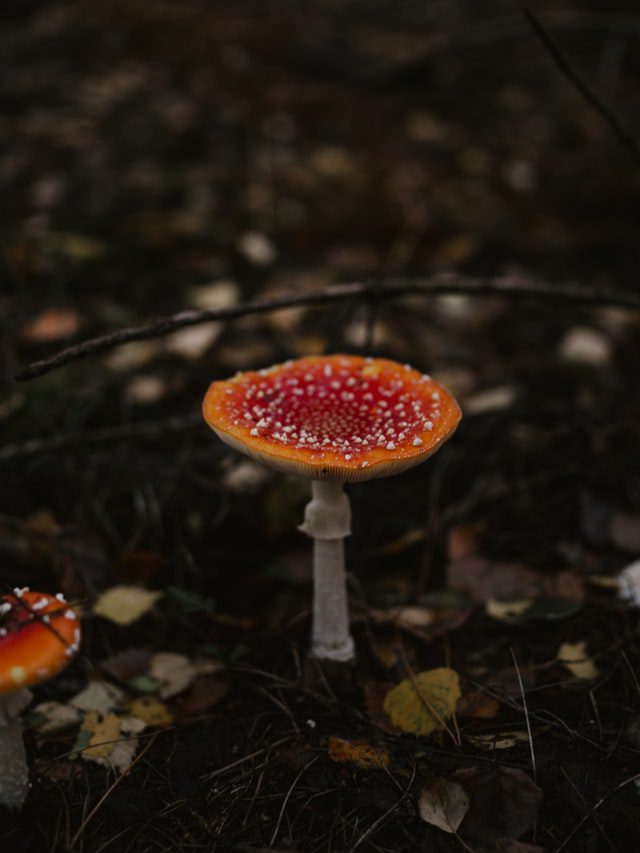Natural Medicines Comprehensive Database rates effectiveness based on scientific evidence according to the following scale: Effective, Likely Effective, Possibly Effective, Possibly Ineffective, Likely Ineffective, Ineffective, and Insufficient Evidence to Rate. The effectiveness ratings for REISHI MUSHROOM are as follows:
Possibly ineffective for…
- High levels of cholesterol or other fats (lipids) in the blood (hyperlipidemia). Reishi mushroom does not seem to lower cholesterol in people with diabetes, high blood pressure, or high cholesterol.
Insufficient evidence to rate effectiveness for…
- Alzheimer disease. Early research shows that taking reishi mushroom powder does not improve memory or quality of life in people with Alzheimer’s disease.
- Enlarged prostate (benign prostatic hyperplasia or BPH). Men with enlarged prostates often have urinary symptoms. Taking extract can improve some urinary symptoms such as the need to urinate often or immediately. But other symptoms such as urine flow rate don’t seem to improve.
- Tiredness in people with cancer. Early research shows that taking reishi mushroom powder reduces tiredness in people with breast cancer.
- Noncancerous growth in the large intestine and rectum (colorectal adenoma). Early research shows that taking reishi mushroom extract can reduce the number and size of these tumors.
- Heart disease. Early research shows that taking the extract (Ganopoly) reduces chest pain and shortness of breath in people with heart disease.
- Diabetes. Most research shows that taking reishi mushroom extract doesn’t improve blood sugar control in people with diabetes. But most of these studies were small, and some conflicting results exist.
- Genital herpes. Early research shows that taking a mixture of the mushrooms and other ingredients helps reduces the time needed for herpes outbreaks to heal.
- Swelling (inflammation) of the liver caused by the hepatitis B virus (hepatitis B). Early research shows that taking reishi mushroom (Ganopoly) reduces how much of the hepatitis B virus is in the body. This product also seems to improve liver function in people with this condition.
- Cold sores (herpes labialis). Early research shows that taking a mixture of the mushroom and other ingredients reduces the time needed for cold sores to heal.
- High blood pressure. Taking the mushroom doesn’t seem to lower blood pressure in people with only slightly high blood pressure. But it seems to lower blood pressure in people with more severe high blood pressure.
- Lung cancer. Early research shows that taking reishi mushroom does not shrink lung tumors. but it seems to improve immune function and quality of life in people with lung cancer.
- Nerve pain caused by shingles (postherpetic neuralgia). Some people report that hot water extracts of reishi mushrooms decrease pain when conventional treatment does not work.
- A sexually transmitted infection that can lead to genital warts or cancer (human papilloma virus or HPV).
- Aging.
- Altitude sickness.
- Asthma.
- Swelling (inflammation) of the main airways in the lungs (bronchitis).
- Cancer.
- Chronic fatigue syndrome (CFS).
- Long-term kidney disease (chronic kidney disease or CKD).
- Fatigue.
- Heart disease.
- HIV/AIDS.
- Influenza.
- Insomnia.
- Poisoning.
- Prostate cancer.
- Shingles (herpes zoster).
- Stomach ulcers.
- Stress.
- Other conditions.
More evidence is needed to rate the effectiveness of reishi mushrooms for these uses.
Side Effects Of Reishi Mushroom
When taken by mouth:
Reishi mushroom extract is POSSIBLY SAFE when taken appropriately for up to one year. But the powdered form is POSSIBLY UNSAFE when taken for more than one month. The use of powdered reishi mushroom has been associated with toxic effects on the liver.
Reishi mushroom can also cause other side effects including dryness of the mouth, throat, and nose, as well as itchiness and rash, stomach upset and diarrhea, dizziness and headache, nosebleed, and bloody stools. Drinking reishi wine can cause a rash. Breathing in reishi spores can trigger allergies.
Warnings & Precautions
- Pregnancy and breast-feeding: There isn’t enough reliable information to know if reishi mushroom is safe to use when pregnant or breastfeeding. Stay on the safe side and avoid use.
- Bleeding disorders: High doses of reishi mushroom might increase the risk of bleeding in some people with certain bleeding disorders.
- Low blood pressure: Reishi mushroom might lower blood pressure. There is a concern that it might make low blood pressure worse. If your blood pressure is too low, it is best to avoid.
- A clotting disorder called thrombocytopenia: High doses of might increase the risk of bleeding in people with thrombocytopenia. If you have this condition, do not use reishi mushroom.
- Surgery: High doses might increase the risk of bleeding in some people if used before or during surgery. Stop using reishi mushroom at least 2 weeks before a scheduled surgery.
Reishi Mushroom Dosage
The appropriate dose depends on several factors such as the user’s age, health, and several other conditions. At this time there is not enough scientific information to determine an appropriate range of doses for reishi mushroom. Keep in mind that natural products are not always necessarily safe and dosages can be important. Be sure to follow relevant directions on product labels and consult your pharmacist or physician or other healthcare professional before using.
Other
Consult your doctor or pharmacist.
Source
All information has been provided courtesy of MedLinePlus from the National Library of Medicine and from the FDA.



